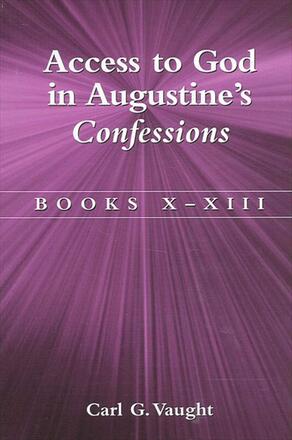
Access to God in Augustine's Confessions
Books X-XIII
Alternative formats available from:
Continuing his groundbreaking reappraisal of the Confessions, Carl G. Vaught shows how Augustine's solutions to philosophical and theological problems emerge and discusses the longstanding question of the work's unity.
Description
This is the final volume in Carl G. Vaught's groundbreaking trilogy reappraising Augustine's Confessions, a cornerstone of Western philosophy and one of the most influential works in the Christian tradition. Vaught offers a new interpretation of the philosopher as less Neoplatonic and more distinctively Christian than most interpreters have thought. In this book, he focuses on the most philosophical section of the Confessions and on how it relates to the previous, more autobiographical sections. A companion to the previous two volumes, which dealt with Books I–IX, this book can be read either in sequence with or independently of the others.
Books X–XIII of the Confessions begin after Augustine has become Bishop of Hippo and they are separated by more than ten years from the episodes recorded in the previous nine books of the text. This establishes the narrative in the present and speaks to the "believing sons of men." Augustine explores how memory, time, and creation make the journey toward God and the encounter with God possible. Vaught analyzes these conditions in order to unlock Augustine's solutions to familiar philosophical and theological problems. He also tackles the frequently discussed problem of the alleged disconnection between the earlier books and the last four books by showing how Augustine binds experience and reflection together.
Carl G. Vaught is Distinguished Professor of Philosophy at Baylor University. He has written many books, including the previous two titles in this trilogy, The Journey toward God in Augustine's Confessions: Books I–VI, and Encounters with God in Augustine's Confessions: Books VII–IX, both also published by SUNY Press.